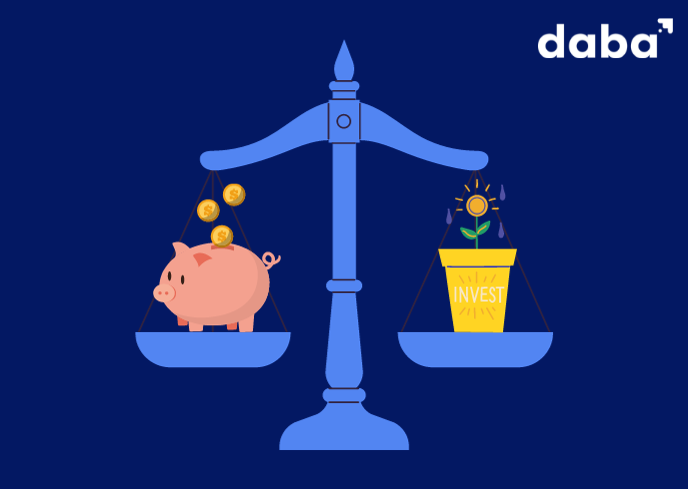Gérer votre argent de manière efficace est une compétence cruciale qui peut conduire à la stabilité financière et au succès à long terme.
Que vous commenciez tout juste votre parcours financier ou cherchiez à améliorer vos compétences en gestion financière, suivre vos finances est la première étape vers la réalisation de vos objectifs financiers.
Dans ce guide, nous expliquons l’importance du suivi de vos finances et fournissons des conseils pour vous aider à commencer sur la bonne voie.
Pourquoi suivre vos finances?
Conscience: Suivre vos finances vous permet de comprendre clairement d’où vient votre argent et où il va. C’est comme créer une carte routière pour vos finances, ce qui vous permet de voir le tableau d’ensemble et de prendre des décisions éclairées.
Imaginez que vous dépensiez 5 $ pour un café chaque jour avant le travail. En suivant vos dépenses, vous réalisez que vous dépensez 150 $ par mois rien que pour le café. Cette prise de conscience pourrait vous inciter à réduire à quelques fois par semaine, économisant environ 90 $ par mois.
Établissement d’un budget: Créer un budget est une partie essentielle de la planification financière. En suivant vos dépenses, vous pouvez identifier les domaines où vous pourriez trop dépenser et apporter les ajustements nécessaires pour atteindre vos objectifs financiers plus rapidement.
Gestion de la dette: Suivre vos dettes, telles que les cartes de crédit ou les prêts, vous aide à respecter les délais de paiement et à éviter des frais d’intérêt inutiles.
Épargne et investissements: Suivre vos finances vous permet de mettre de l’argent de côté pour l’épargne et les investissements de manière plus efficace. Cela vous aide à comprendre combien vous pouvez économiser chaque mois sans compromettre vos dépenses essentielles.
Commencer à suivre vos finances
Rassemblez les informations financières: Rassemblez tous vos documents financiers, y compris les relevés bancaires, les factures de carte de crédit, les factures d’électricité et toute autre source de revenus ou de dépenses.
Choisissez une méthode de suivi: Vous pouvez suivre vos finances en utilisant diverses méthodes, telles que :
- Stylo et papier : Notez vos revenus et vos dépenses dans un cahier ou une simple feuille de calcul.
- Applications mobiles : Il existe de nombreuses applications de budgétisation et de suivi des dépenses disponibles pour les smartphones, facilitant le processus.
- Outils en ligne : De nombreuses plates-formes en ligne, comme Cowrywise, offrent des outils gratuits pour vous aider à suivre vos finances.
Catégorisez vos revenus et dépenses: Divisez vos revenus et dépenses en catégories pour mieux comprendre vos habitudes de dépenses. Les catégories courantes incluent le logement, la nourriture, le transport, les loisirs et l’épargne.
Enregistrez vos transactions régulièrement: La constance est la clé ! Prenez l’habitude d’enregistrer vos transactions quotidiennement ou hebdomadairement. Cela garantit que vous avez une image à jour de vos finances et évite le stress d’essayer de vous souvenir des dépenses plus tard.
Analysez vos finances: Une fois que vous avez suffisamment de données, examinez vos habitudes de dépenses et identifiez les domaines où vous pouvez réduire vos dépenses ou réallouer des fonds. Cette analyse vous aidera à définir des objectifs financiers réalistes et à prendre des décisions éclairées sur votre argent.
Faire les choses correctement
La vie est pleine de surprises. Suivre vos finances vous permet de constituer un fonds d’urgence. Par exemple, lorsque votre voiture a besoin de réparations imprévues, vous pouvez couvrir les coûts sans dérailler votre budget mensuel.
Suivre vos finances peut sembler intimidant au début, mais les avantages qu’il apporte à votre bien-être financier sont immenses.
Avec une meilleure compréhension de où va votre argent, vous pouvez prendre des décisions plus éclairées, créer un budget, rembourser vos dettes et épargner pour l’avenir.
N’oubliez pas que la constance et la détermination sont les clés du succès. Alors, commencez à suivre vos finances aujourd’hui et prenez le contrôle de votre avenir financier !





